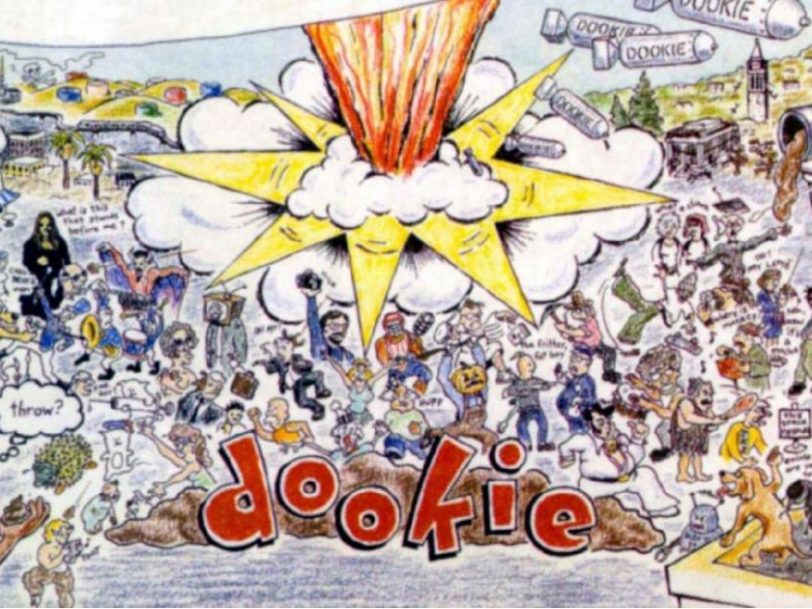Green Day’s Dookie is the kind of record every rock band worth their salt dreams of making. First released in early 1994, this hit-stuffed jamboree moved over 20 million copies, made its creators global stars and is now widely credited as the record which introduced US pop-punk to the mainstream. Indeed, it’s now viewed in a similar light to AC/DC’s Back In Black or Nirvana’s Nevermind: as a record that’s a mandatory purchase for discerning rock fans of all stripes.
Listen to ‘Dookie’ here.
“An upbeat flavour of punk in a bleak era”
On their own, the statistics are staggering, but Dookie’s success is all the more remarkable when you consider Green Day’s circumstances when they recorded it. Thanks to the unexpected success of their second album, Kerplunk! (which sold 10,000 copies on its day of release), the band became the flagship act for San Francisco indie label Lookout Records, but they never saw themselves as a mainstream act. Consequently, when Lookout boss Larry Livermore told Billie Joe Armstrong he’d received interest from major-label A&R men, the Green Day frontman initially wrote their advances off as crank calls.
- 10 Reasons Why ‘Dookie’ Is The Best Pop-Punk Album Of All Time
- Best 90s Songs: 20 Era-Defining Tracks From An Undefinable Decade
- Best 90s Albums: 30 Essential Records That Defined The Decade
Yet once they understood these overtures were for real, Green Day became the subject of an intense bidding war involving several potential suitors. One executive even attempted to woo the band with a trip to Disneyland, but the Bay Area trio remained unimpressed – at least until they met Rob Cavallo from Warner’s Reprise subsidiary.
A producer with session-musician experience and an unabashed lover of punk rock, Cavallo had been blown away by a tape of Green Day’s new songs, and he was determined to sign the group. Fortunately, he was the one person from this shiny new world who made a positive impression on the band.




